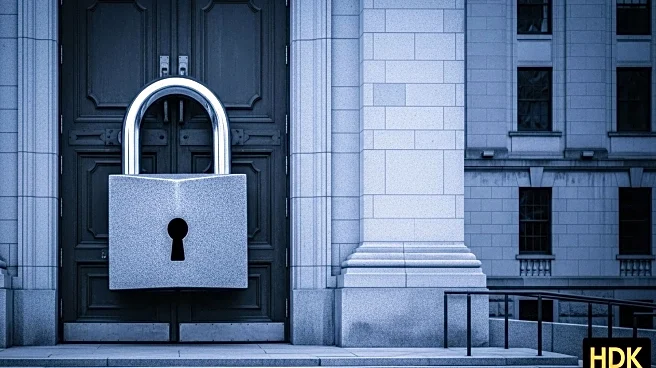What's Happening?
The U.S. Senate has failed to pass a government funding bill for the fifth time, prolonging the government shutdown into its seventh day. The vote, which ended with a 52-42 result, was largely divided along party lines. This ongoing shutdown has resulted in the closure of various government services, including the National Gallery of Art. The situation is critical as the next paycheck for 1.3 million active-duty members of the armed services is scheduled for October 15, a date that both President Trump and lawmakers are keen to address. The shutdown continues to impact federal operations and services, with no immediate resolution in sight.
Why It's Important?
The extended government shutdown has significant implications for federal employees, military personnel, and the general public relying on government services. The inability to pass a funding bill reflects deep political divisions and could lead to economic disruptions if prolonged. The shutdown affects various sectors, including national security, as military personnel face potential delays in pay. Additionally, the closure of government facilities impacts tourism and local economies. The situation underscores the challenges in reaching bipartisan agreements and the potential consequences of political stalemates.
What's Next?
If the shutdown continues, the October 15 deadline for military paychecks looms as a critical point of concern. Lawmakers may face increased pressure to negotiate a resolution to avoid further disruptions. The ongoing political impasse could lead to intensified discussions and potential compromises to restore government operations. Stakeholders, including federal employees and military families, will be closely monitoring developments as the situation unfolds.
Beyond the Headlines
The government shutdown highlights broader issues of political polarization and governance challenges in the U.S. The inability to pass a funding bill reflects deeper systemic issues that could have long-term implications for public trust in government institutions. The situation may prompt discussions on reforming legislative processes to prevent future shutdowns and ensure more effective governance.











